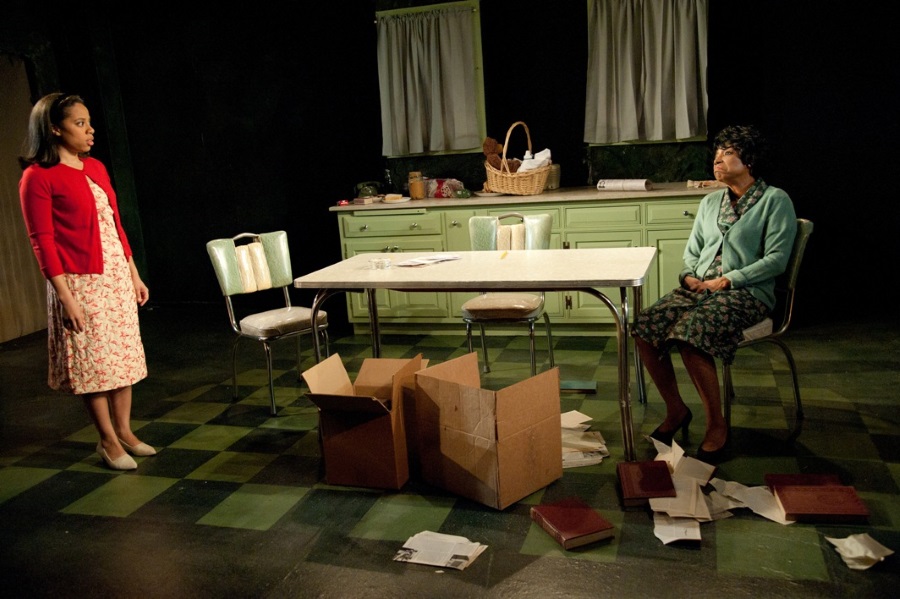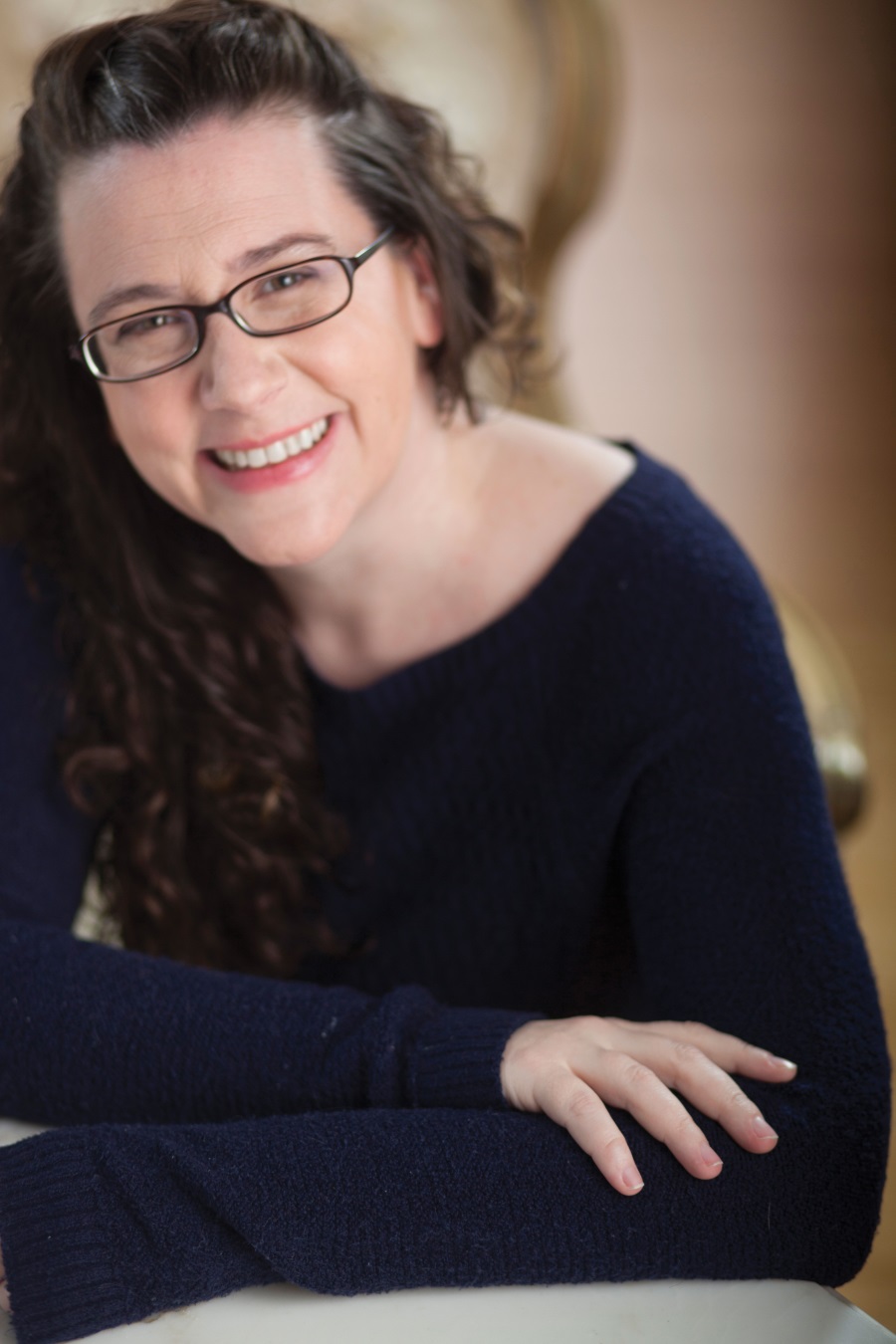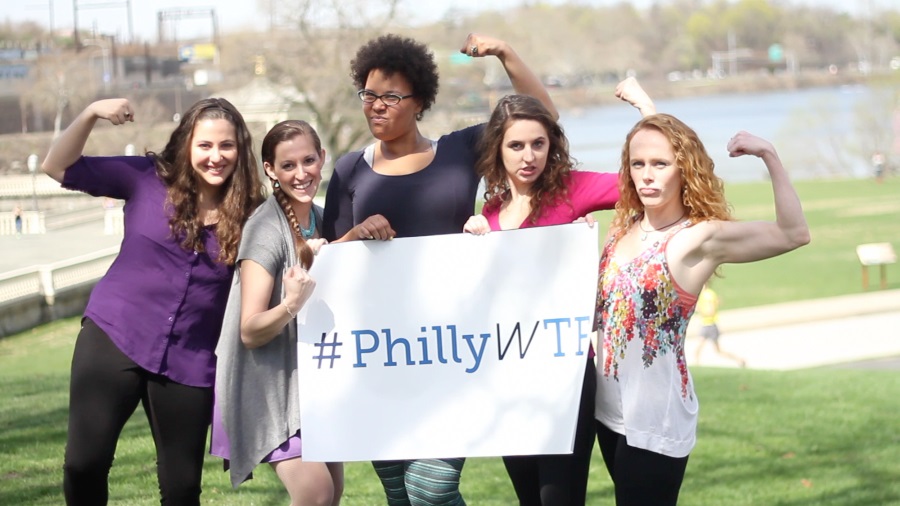PHILADELPHIA: Philadelphia Women’s Theatre Festival artistic director Polly Edelstein confessed that she and her fellow founding organizers met some resistance about the event’s name when they looked at the acronym.
“We noticed that it was PWTF,” Edelstein says with a shrug of amusement as we sit in a café off Philly’s Rittenhouse Square. But instead of shying away from the implicit profanity, Edelstein and managing director Christine Petrini decided to boldly embrace it. Their inaugural festival runs July 30–Aug. 2 at Asian Arts Initiative, a versatile venue just north of Center City Philadelphia, and at a few surrounding smaller venues.
“Now we’ve adopted this idea of ‘Philly, what the fuck?’” Edelstein declares, getting into the swearing spirit. “Why aren’t you doing more work by women and more work for women and creating more opportunities for women?”
The festival will feature one fully staged production, three staged readings, a selection of solo and group-devised work, discussion panels, workshops, networking events and a standup comedy night. The focus is on more than simply presenting work by women, though.
As Edelstein puts it, “The idea is to create a platform for women as writers, as directors, as leaders, as actors.” Adds Petrini, “We want to be a network and a community for artists to come to, and be able to get professional development help to start their career, to overcome mid-career and late-career struggles.”

Edelstein met Petrini while studying theatre and nonprofit management at Villanova University. The festival grew out of what Edelstein calls a “manifesto” about gender parity in the arts, which she was inspired to write during her final year, after two university seasons of all male-written plays.
In the past five years, she points out, only 20 percent of produced plays were written by women and just 10 percent were directed by women at Philadelphia’s top-grossing professional theatre companies. The Barrymore Awards, the city’s annual prizes for excellence in theatre, are another lens with which to view the imbalance. Two or three men often dominate the same design award categories year after year—sometimes with the same male designer nominated multiple times within that category. “I do think there’s a huge discrepancy,” Edelstein concludes.

Philadelphia playwright Jacqueline Goldfinger, who has put her extensive writing and production experience to good use in helping PWTF’s young founders develop the festival, had her own epiphany about the gender gap when her play, Slip/Shot, won a 2012 Barrymore for outstanding new play—and she realized that she was only the second woman playwright in the competition’s 20-year history to win in the category. Philadelphia magazine interviewed her about “how I was the first female playwright from the region to really gain professional traction, and that was in 2012!” Goldfinger exclaims.
While female directors have made a comparatively good showing at the Barrymores, the F. Otto Haas Award, which goes to an emerging Philadelphia theatre artist, has favored men: Since the Barrymores’s 1995 launch, just seven women have received the prize (with all male winners from 2002 through 2008).
PWTF received more than 100 submissions, with writers from as far away as Honolulu sending work. In programming the first festival, organizers focused on selecting Philly-based writers, but say they plan to expand the event’s reach in future iterations.
In-kind donations, earned income, funding and fiscal sponsorships from Fractured Atlas, Villanova and 954 Dance Movement Collective have built up a budget of about $20,000, Edelstein says. The amount is enough to pay the artists involved and raise hopes for future years.
Philly isn’t the only place gearing up for a women’s theatre festival—Washington, D.C.’s Women’s Voices Theater Festival will feature new plays by women at 50 participating companies in October—but Edelstein says the city is particularly hospitable to such a gathering: “There’s such an active, close-knit, invested, interested arts community.”
“We legitimize art and artists in ways that other cities do not,” Goldfinger adds. “There’s a great sense of respect for people who are striving to express themselves, no matter what form that may take.”
A big reason for the gap between plays written and directed by men versus female-authored work has to do with economics.
“I don’t think it’s all intentional sexism—it’s just what we’ve gotten used to,” Edelstein says. “People want to do well, to be diverse and inclusive, but they just need to be reminded.”
Edelstein, Petrini and Goldfinger were all careful to say that PWTF, while it focuses on women’s work, is not meant to have an exclusionary tone. “The whole idea is to be a sophisticated and celebratory experience,” Petrini adds. “We do not want this to be a man-bashing experience. We want it to be an inclusive celebration.”
Edelstein hopes that PWTF will help participants and audiences recognize implicit biases in a business dominated by male artistic directors. “We want it to be fun. We want it to be important and inspiring, but we also want it to be a little bit of a wake-up call.”


